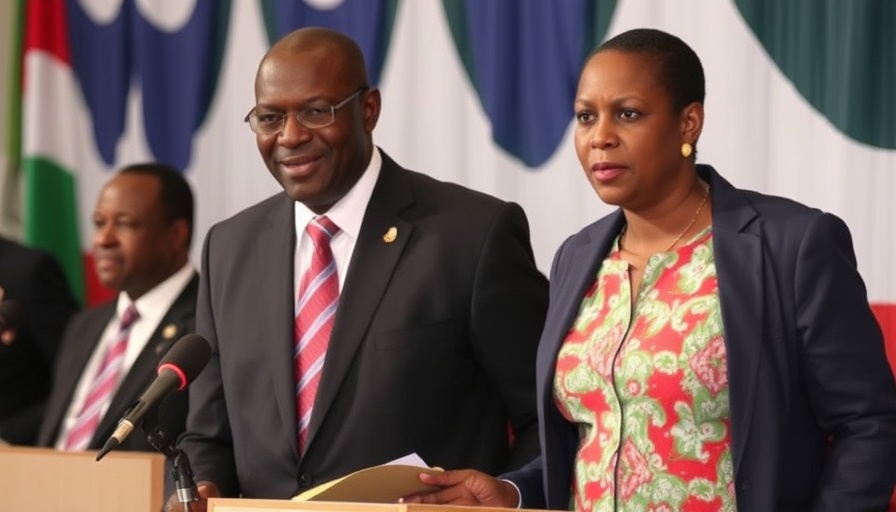
Senegal's Shifting Political Landscape: A Moment of Uncertainty
In the heart of West Africa, Senegal is grappling with significant political turmoil as the coalition between the charismatic Ousmane Sonko and his ally, economist Aissatou Sow Faye, faces unprecedented challenges. Their movement, initially heralded as a revolutionary force poised to disrupt the status quo, has stumbled, exposing deep rifts and questions regarding the future of governance in the nation.
Market Reactions: Unpacking Investor Sentiment
The political instability in Senegal reverberates through its financial markets, presenting both risks and opportunities for investors. Analysts note that the uncertainty surrounding the Faye-Sonko coalition may lead to increased volatility in Senegal's economy. Business leaders are urged to stay vigilant, given that a stable political environment is critical for fostering economic growth and maintaining favorable conditions for foreign investment.
The Broader Implications for Africa's Political Landscape
Senegal's political saga is not isolated; its implications ripple through the continent. As Africa's dynamics shift—with heightened focus on governance and diplomatic relations—the Senegalese situation could either serve as a cautionary tale or an impetus for reform in neighboring countries. Policymakers across the continent will be watching closely for signs of stability—or further unrest—and the potential impact on global trade dynamics with Africa. For instance, Senegal's foreign relations, particularly with the EU and China, could be influenced profoundly if political disruptions continue.
Future Predictions: What’s Next for Senegal?
Looking ahead, the question remains whether Sonko's movement can regain momentum or whether it will fracture under the pressure of political realities. Observers speculate that a reevaluation of strategies within the coalition might be necessary if they hope to unite their base and drive meaningful change. Continued instability may prompt a shift in international perception, impacting foreign investments and economic partnerships at a crucial juncture for Senegal.
Unique Benefits of Understanding the Current Political Climate
For business leaders and policymakers, grasping the nuances of Senegal's situation is vital for navigating the complexities of engagement in the African market. Knowledge of political shifts not only assists in risk assessment but also in identifying strategic opportunities within a rapidly changing landscape.
As the situation evolves, engagement in thoughtful dialogue will be crucial for those invested in Africa's socio-economic trajectory. Staying informed and proactive can empower stakeholders to not only be resilient in the face of uncertainty but also to seize potential opportunities that emerge in the wake of disruption.
 Add Row
Add Row  Add
Add 


Write A Comment